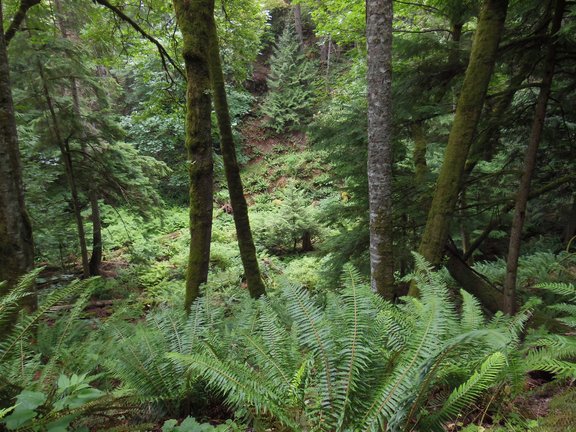Totem blessing at Village Point
/The House of Tears Carvers of the Lummi Nation transported a 24-foot totem pole to Village Point Marina on Lummi Island, a stop on the Red Road to DC. This is a journey to build support for the sovereign right of tribal nations to shape local and federal solutions, and protect sacred places and the natural world for generations to come.
The significance of Village Point
It is significant that Master carver Jewell James and the House of Tears brought the new pole here to be blessed. Lummi Island is traditional Lhaq’temish (Lummi) territory. The 1855 Point Elliot treaty reserved the Lummi Nation’s right to fish at their "usual and accustomed places.” But by the end of the 1800s, Lummi reetnets had disappeared from their historical fishing grounds at Legoe Bay after being pushed out by the salmon traps and adverse court rulings.
In 1915 Washington made it an offense for Indians to fish outside their reservation without a license. Since the state did not recognize tribal members as citizens, Lummis could not get fishing licenses. Village Point—one of the greatest traditional salmon fishing places in the Salish Sea—was off limits to the Lummi Nation.
Lummi elders Frank Hillaire (left) and Tom Squiqui (right) at Village Point in 1914, demonstrating a model of a reef net in support of fishing rights. Source: Whatcom Museum of History & Art, also at the Washington Rural Heritage Collection.
In their place, large salmon traps and canneries sprawled out into the sea. When the fish traps were outlawed in 1935, local non-indigenous fishermen hired Lummi fisherman to learn the art of reefnet fishing. The ingenious, sustainable fishing methods invented by the Coast Salish people “stand out as the original and still the best in selective fishing”, according to Washington Dept. of Fish & Wildlife.
It’s been a long struggle with the State of Washington, including 1960s protest “fish-ins” and the pivotal 1974 Boldt decision that secured 50 percent of the fish harvest for Indian fishers. Now Lummi Island Wild partners with tribal members of Lummi Nation and other tribes to bring sustainable seafood to market.
“We hope by bringing this totem pole to Washington, D.C., we’ll also awaken the sacred commitment the United States has to the Native American Nations.””
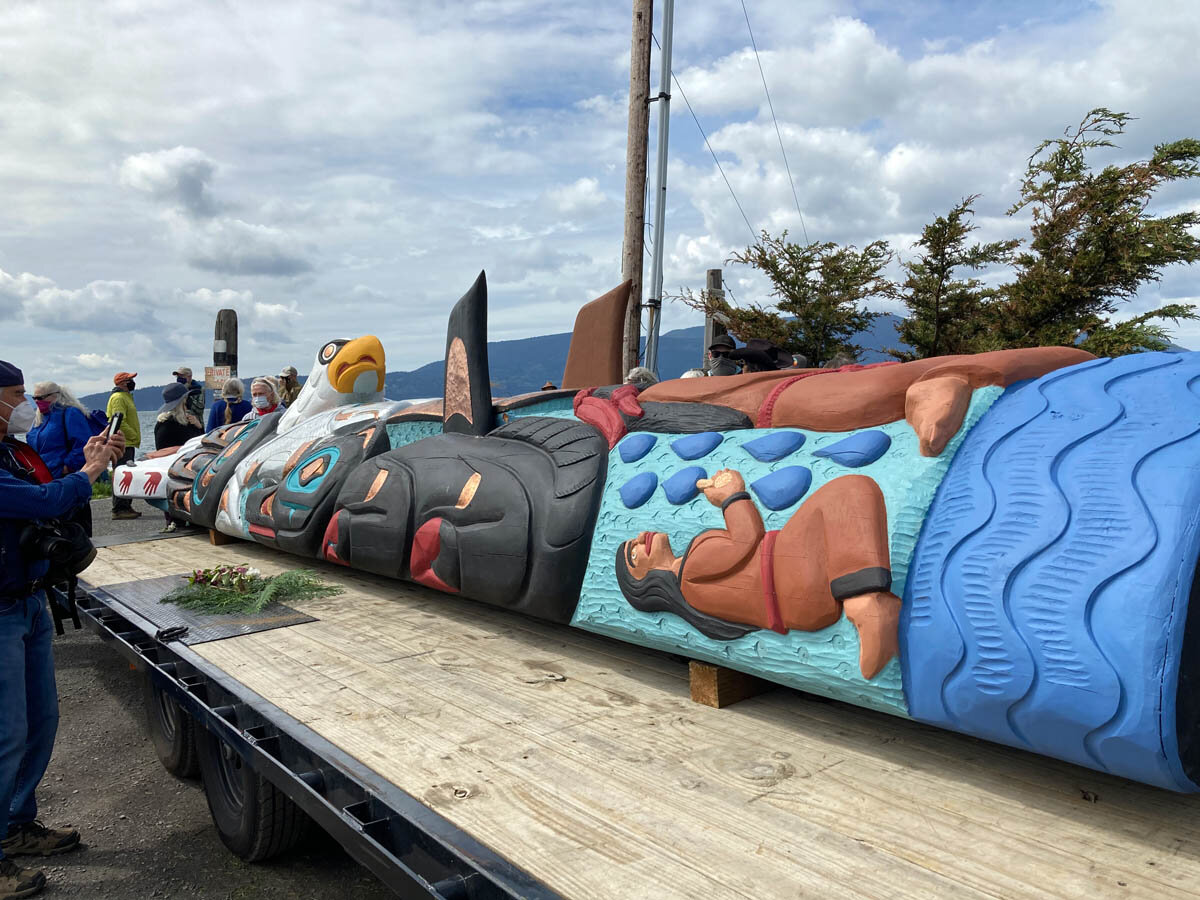
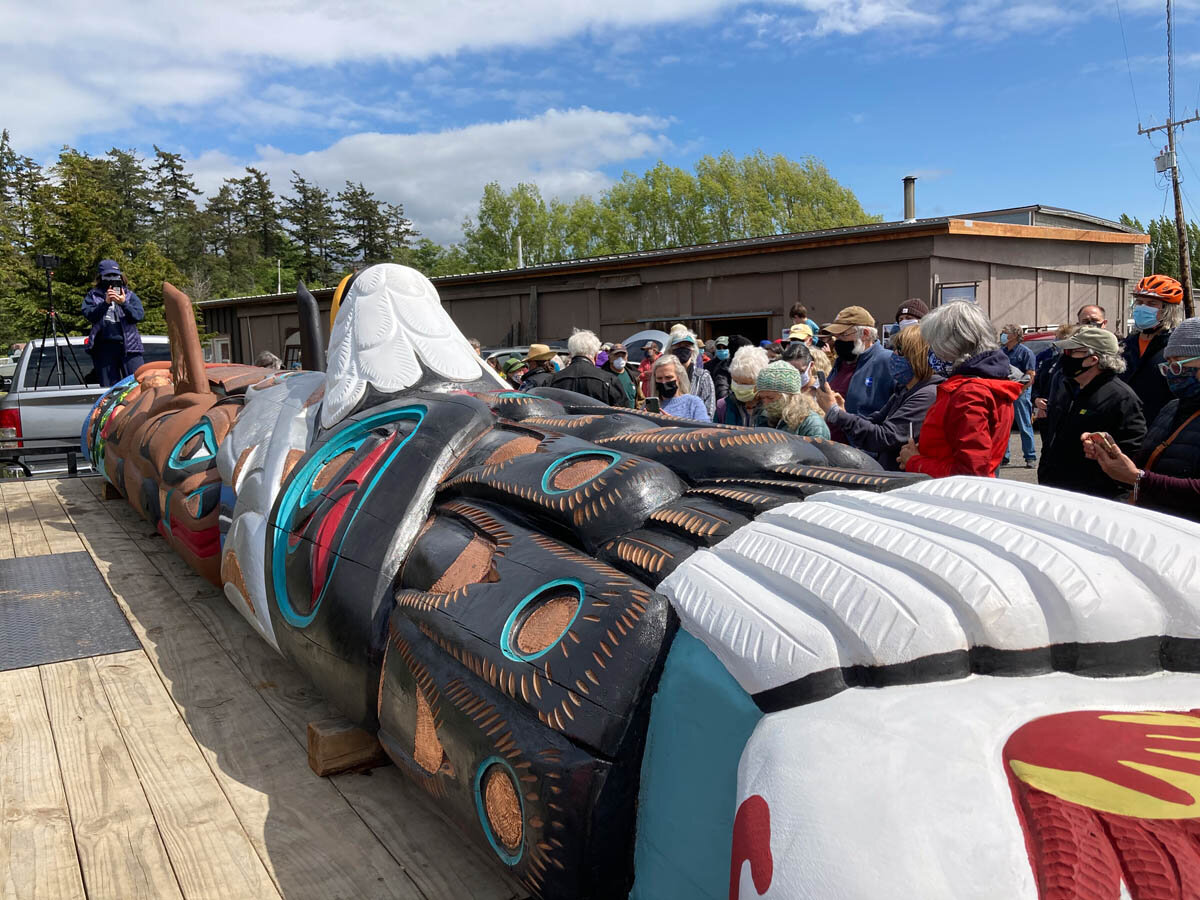
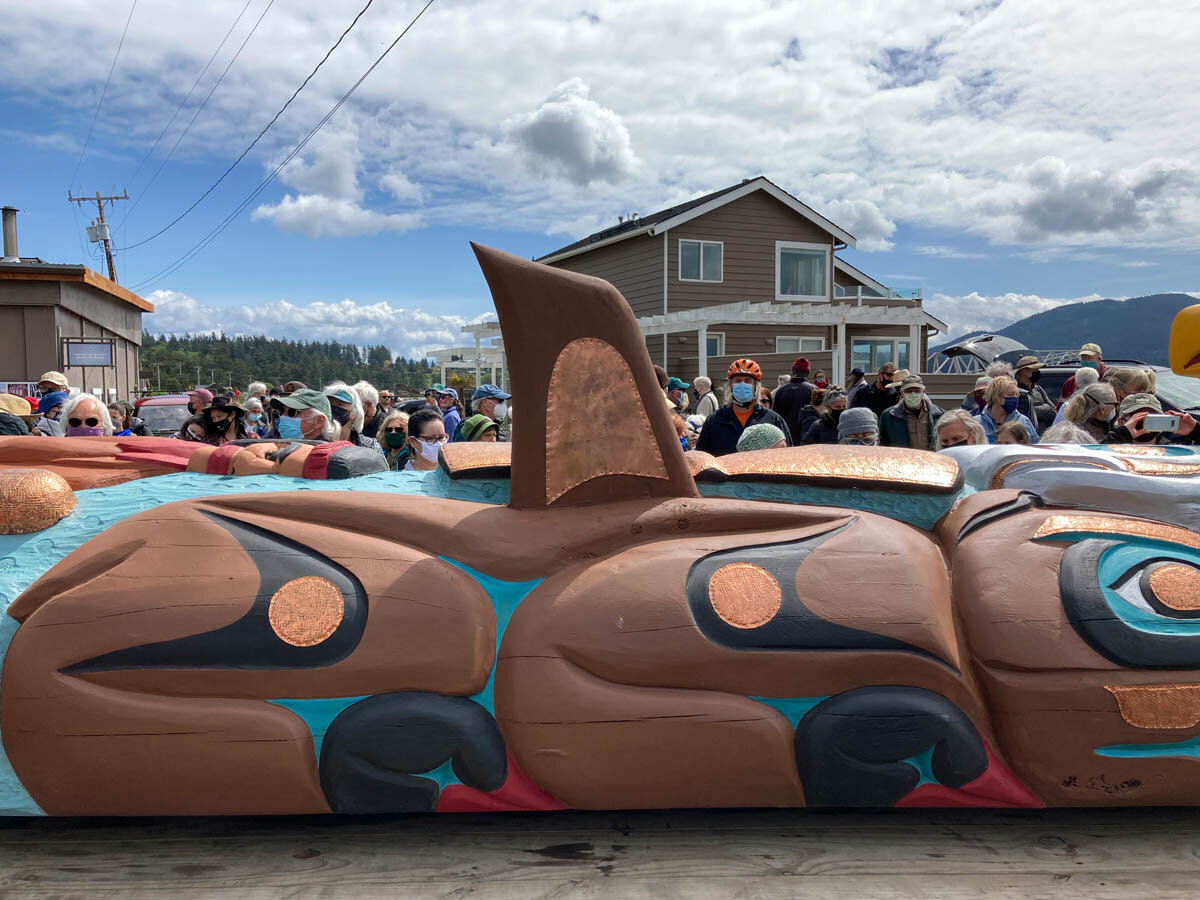
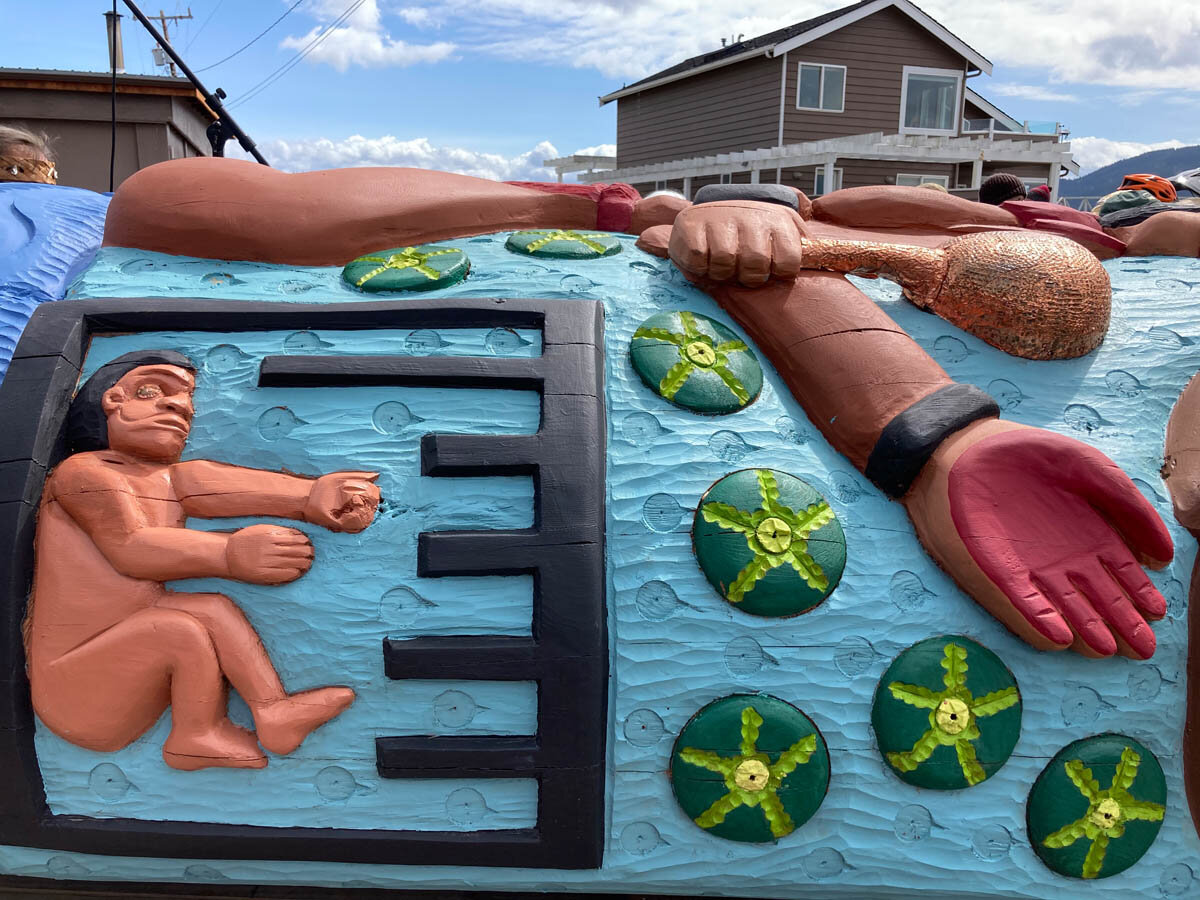
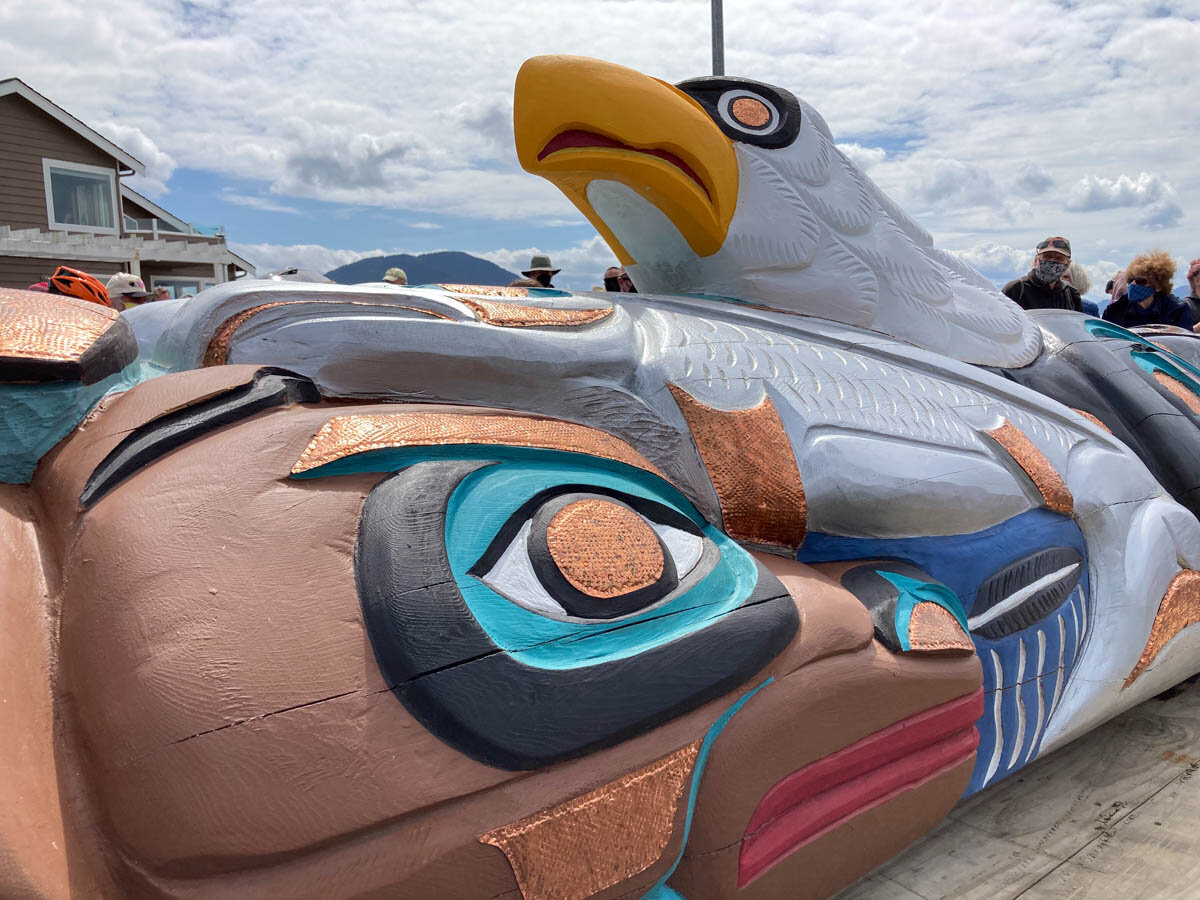
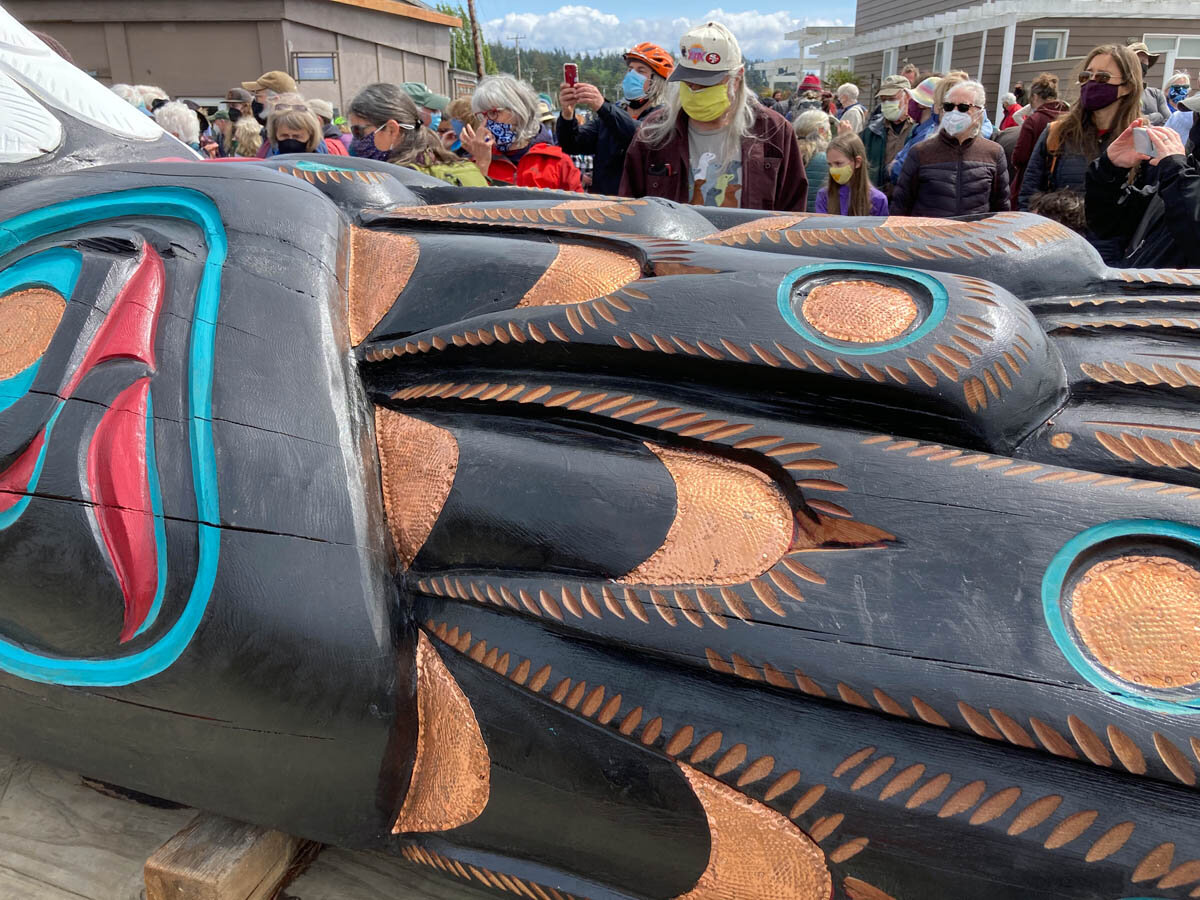
To the President
The journey will culminate in Washington D.C. in July when the pole is presented to President Biden, and will be featured at the Smithsonian National Museum of the American Indian this fall. Significantly, Deb Haaland has become the first Native American Cabinet Secretary in US history. She leads the Department of the Interior, responsible for management of the nation’s public lands and Indian Affairs.
The totem pole is carved from a 400 year old Western Red Cedar tree. The pole includes Chinook salmon—at risk of extinction, a wolf, a bear, an eagle, and seven tears, a reference to seven generations of trauma passed on from colonialism.





